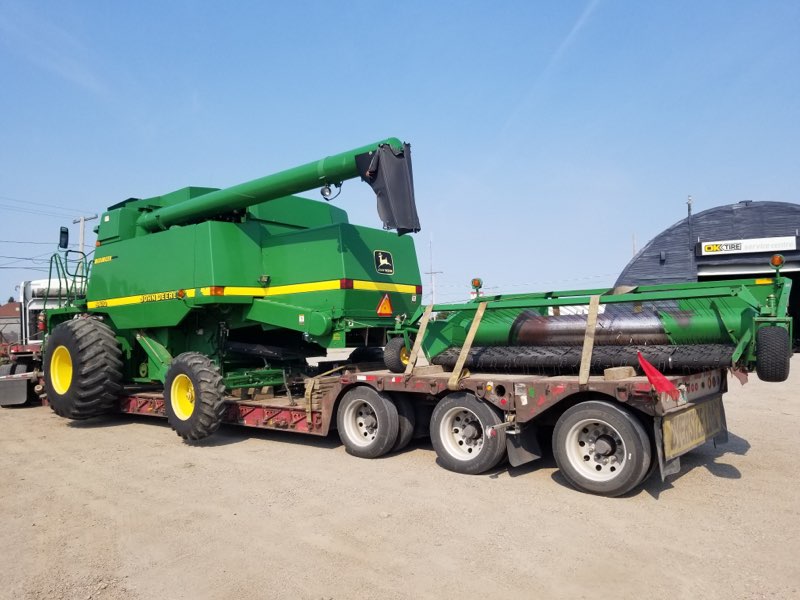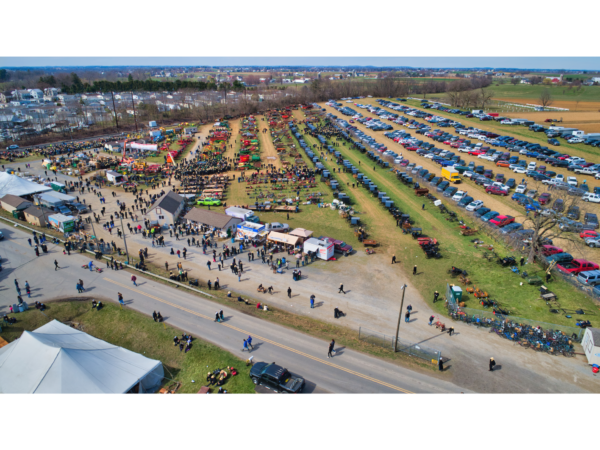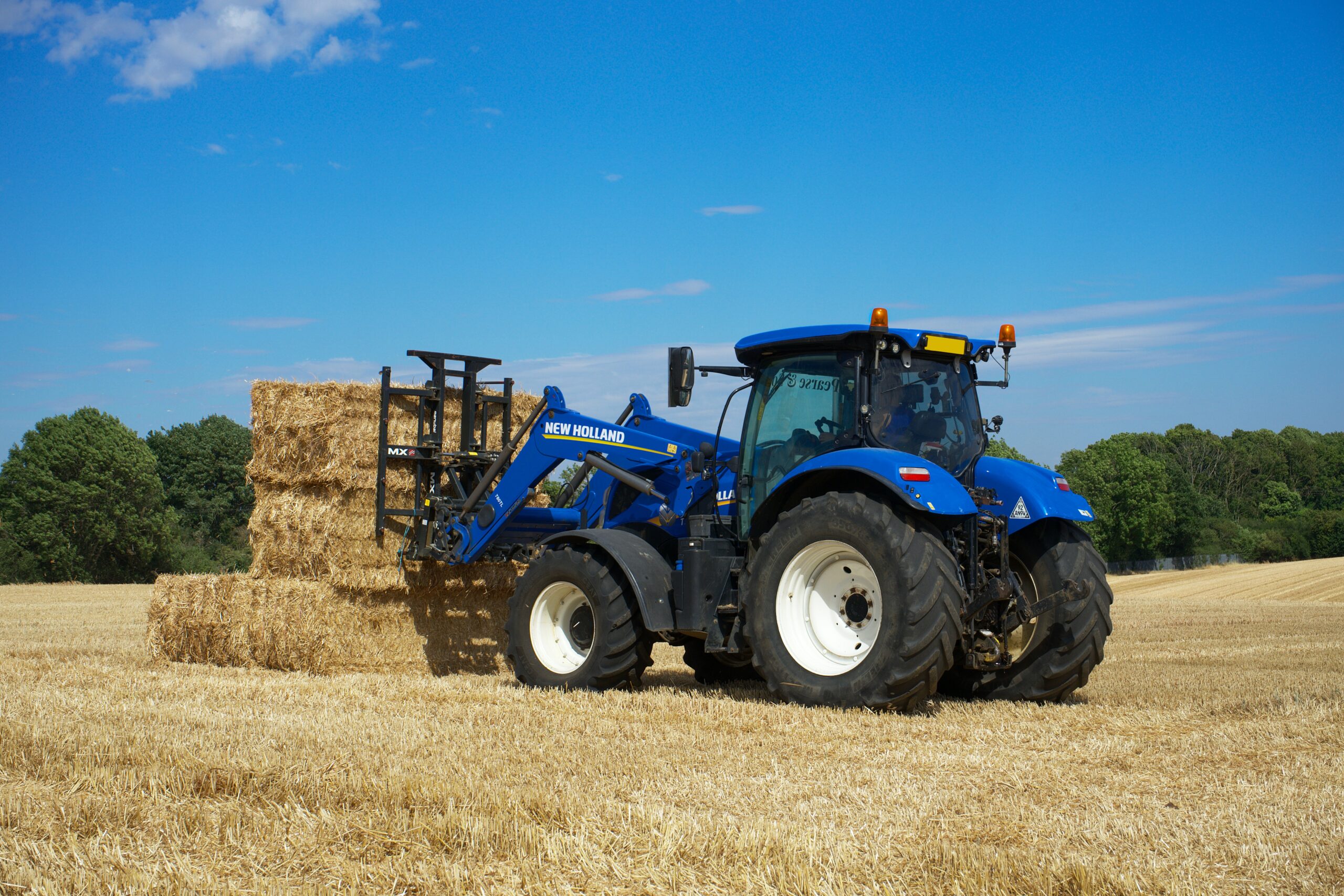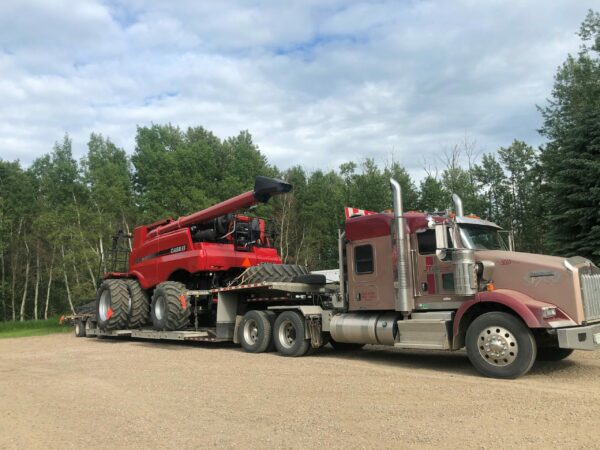Agriculture is a top industry in Western Canada and has been for decades. The biggest change over the years has been the capabilities and size of the equipment used in farming. We’ve evolved over time from ox-pulled ploughs to versatile tractors and attachments, powerful seeding equipment, and massive harvester combines. The roads have also changed to accommodate the volume of cars and machines on the road.
With innovation comes new rules and regulations. Farm machinery does need to move between locations frequently, especially if it’s a new purchase, lease or rental, but for the safety of everyone on the road, large farm machinery cannot monopolize the lanes at all hours of the day. Each province sets there own rules for farm equipment transport regarding which routes can accommodate the heavy hauls and when.
Farm Equipment Transport Rules in Manitoba
Agricultural equipment is exempt from some of the heavy equipment hauling rules of Manitoba. The province defines “agricultural equipment” as the following:
“A vehicle designed and used primarily in agricultural, horticultural, or livestock operation, but excludes any vehicle designed primarily for transporting passengers, cargo, or vehicles other than agricultural equipment on a highway, and a garden tractor, lawnmower, or lawn tractor.”
The following exemptions apply to vehicles which match the above definition:
Overwidth Permit Exemption
The required permit of overwidth does not apply when agricultural equipment is self-propelled or towed on a highway for agricultural purposes, including repair. They are also exempt from permits when hauled for, by, or on behalf of a dealer when delivering the machine from the dealer to the farm during daylight hours.
At all other times and for all other reasons, farm equipment still needs a permit when hauled in the province of Manitoba.
Oversize in Length and Height Permit Exemption
Farm equipment that exceeds the maximum length of 2.6 m does not need a permit to travel on Manitoba roads. However, farming equipment that exceeds provincial height restrictions of 4.15 m (13’7”) does require a permit. Height restrictions are typically in place because there are overhead hazards, such as powerlines, trees, and bridges or overpasses on main roads, secondary highways, and rural gravel roads.
Pilot Vehicle Exemptions
When hauling or driving a piece of farm equipment that is exempt from the overwidth permit, pilot vehicles are not necessary. You don’t need a pilot vehicle when your load (machine and trailer) is less than 6.1m wide, you’re travelling in daylight, and your load does not cross the centre line. In other scenarios, and if you need to haul your machine at night, you will be subject to oversized regulation.
For a complete report on the rules, restrictions and exemptions when hauling farm equipment in Manitoba, you can consult the government website.
Farm Equipment Transport Rules in Saskatchewan
The province of Saskatchewan considers the following to be farm equipment:
- Tractors
- Combines
- Tilling equipment
- Seeders
- Sprayers
- Manure spreaders
Items such as grain bins, hopper bottoms or cones, and livestock shelters do not count as farm equipment and are subject to the same transport rules as all other heavy equipment shipping.
When Are Permits Exempt?
You won’t need a permit to haul your farm equipment when it’s travelling on municipal roads and not on any provincial highways. You don’t need a permit when your equipment is towed behind a vehicle or is self-propelled and travelling on a non-designated provincial highway in daylight hours. The province recommends that you use signs and flashing beacons, but it is not mandatory by law.
Even with these exemptions, there are still limitations on when you can move your equipment.
Restrictions on Moving Farm Equipment
Farmers cannot move their farming equipment during the following times and days:
- After 3pm on Fridays from the Friday before Victoria Day until Labour Day
- After 12pm on Sundays, Public Holidays, December 24, 27, and 31
- After 3pm on days before a public holiday.
- Holidays that fall on a Monday are subject to normal Sunday restrictions.
- After 3pm on Fridays, when a public holiday falls on Saturday, Sunday, or Monday
Regulation Escort Vehicles & Farm Escort Vehicles
When farm equipment is loaded and exceeds the maximum dimensions allowed, a regulation escort vehicle is required to accompany the machine or the truck and trailer hauling it. This includes when travelling from dealership to dealership or from dealership to auction.
A farm escort vehicle is required when the load is travelling from a dealership to a farm or while travelling on municipal roads. These vehicles help you navigate unexpected obstacles and notify the surrounding traffic of the equipment on the road.
For full details on restrictions and exemptions for shipping heavy farm equipment, consult the Saskatchewan government website.
Why Special Rules Matter for Agricultural Equipment
At the end of the day, knowing what and when you’re allowed to transport in regards to farm equipment in Manitoba, Saskatchewan, and Alberta matters for public safety. The large size of most pieces of agricultural machinery and the slower paces that they travel when self-propelled or hauled by a truck creates variables the public is often not aware of. When you know your rules, you’re helping to ensure you haul your load safely and are doing your part to keep the public safe. Successful heavy hauling always starts with safety protocols.
Cross Border Farm Machinery Transport
Buying farm equipment from an auction in the United States is a common practice because the volume of selection is often higher. Why limit yourself to the inventory locally when you have reliable heavy haul drivers across North America ready to bring your equipment purchase to you? With all the fall auctions across the Midwest for agricultural equipment, now is a great time to put a plan in place to haul your equipment from the United States to Canada. Here are a few quick tips to help you plan ahead.
Hire a Customs Broker
If you want to make your cross border shipping process operate smoothly, we recommend hiring a customer broker. They are experienced in handling the paperwork on cross-border shipments, which means you can relax, knowing you won’t miss any essential details. No one wants a surprise fine because they missed a detail in the process.
Make a Plan
Have a plan in place for when you need to have your equipment transported. If you’re buying from an auction or a dealer in the United States, you’ll need to check on deadlines for moving your purchase. While our network of heavy haul drivers is quick to respond, the reality of transporting heavy machines is that it takes pre-planning and coordination to make it happen. Don’t expect to call a driver to pick up your load on the same day you call them.
Use a Professional Heavy Haul Driver
Working with an experienced heavy haul driver makes the entire process easier. You can have confidence that your equipment will arrive unscathed and delivered on time. Working with a professional who has hauled over the border before will know what is expected of the driver. Between your customs broker and your driver, you won’t face delays because someone forgot the bill of lading (BOL).
Heavy Haulers of Farming Equipment in Canada and the United States
When you need support hauling your heavy farm equipment, use the Trusted Dispatch load board to find a qualified driver. You can get started right away with a free, instant quote. Just enter the dimensions of your machine and your destinations, and you’ll be on your way!





